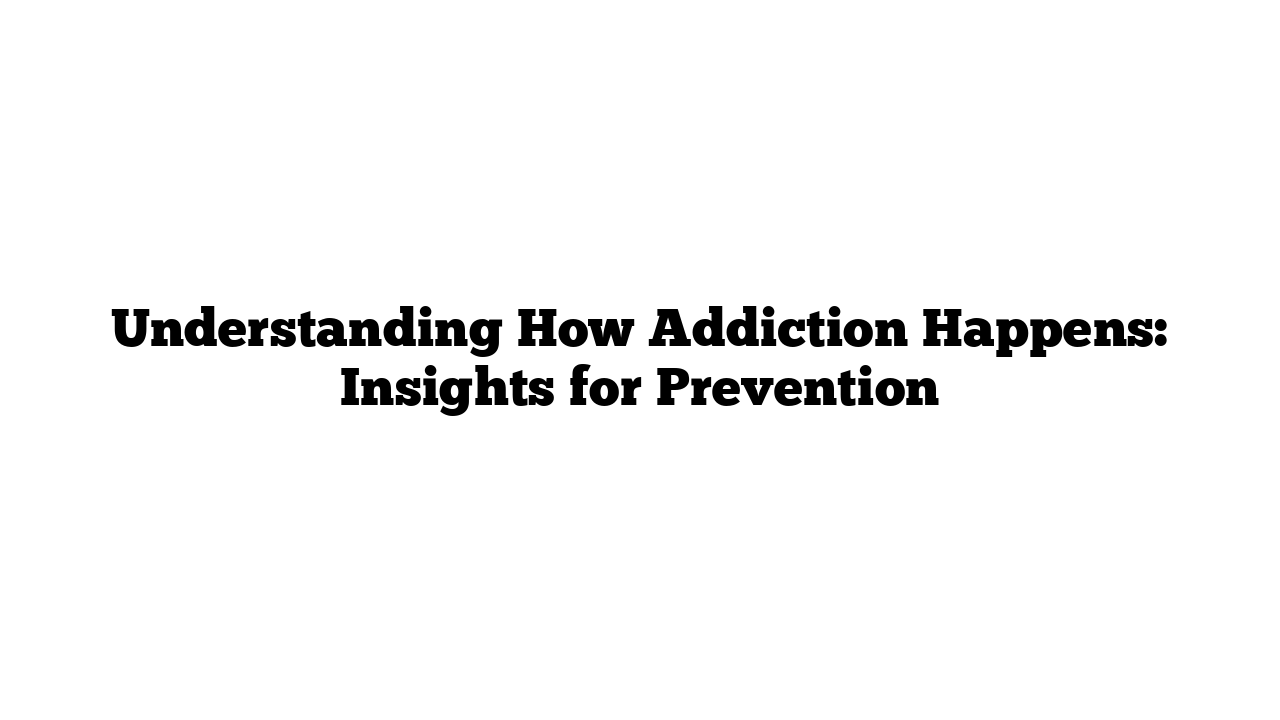In recent years, the troubling rise of addiction among young people has led to devastating consequences, including overdoses from drugs like heroin and fentanyl. To comprehend how a young person might find themselves in such dire circumstances, we must reflect on their journey. Let’s explore how addiction begins and what we can do to prevent it.
The Three Ingredients of Addiction
Addiction is a complex issue, often influenced by various factors. While each situation is unique, three primary ingredients typically contribute to the onset of addiction among teens:
1. Coping with Life’s Pressures
Teenagers face immense pressures as they navigate their identities and the world around them. According to surveys, school stress is the leading reason teens report using drugs. Many also cope with significant challenges at home, including:
- Emotional neglect
- Abuse
- Family illness
- Divorce
- Money troubles
- Loss of a loved one
These stressors can lead to feelings of depression and social anxiety, making it difficult for teens to cope constructively.
2. Poor Coping Skills
Sometimes, teens lack the tools to handle stress effectively. If their parents are preoccupied with work or facing their own struggles, they may not notice their child’s need for support. As a result, teens may develop negative self-images and unhealthy coping mechanisms, leading them to seek relief in substances.
3. Brain Chemistry and Genetics
Genetic predisposition can make some individuals more susceptible to addiction. While not everyone with a family history of substance abuse will become addicted, those with a genetic vulnerability may have a higher risk. It’s essential to understand that addiction can stem from any of these three factors, and even one significant element can lead a teen down the path of substance abuse.
The Cycle of Addiction
How does addiction take hold? When a teenager experiences stress but lacks effective coping strategies, they may experiment with alcohol or drugs. If their brain chemistry makes them more susceptible, they quickly learn that these substances provide temporary relief from their problems.
As they continue to use drugs or alcohol, a dangerous pattern emerges. Repeated use creates a negative feedback loop where the brain associates substance use with coping, reinforcing this behavior. Over time, their brain becomes less aware of the consequences of their actions, leading to deeper involvement with substances.
This cycle can spiral out of control, leading to significant life problems, including legal issues or health crises. Alarmingly, 1 in 10 adults struggle with addiction, resulting in broken families and lost lives.
Preventing Addiction: A Path Forward
For Parents: Engage and Support
Parents, your involvement is crucial. Spend quality time with your kids, especially during their middle school and high school years. Listen without judgment, and make it a priority to understand the pressures they face.
If you suspect your child is struggling, don’t hesitate to seek help from professionals. It’s essential to act quickly. Remember, just like a car accident can be caused by skidding on ice well before hitting a pole, your child may be veering off course without realizing it.
For Teens: You Are Not Alone
Teenagers, if you’re feeling overwhelmed, know that you’re not alone. Many have faced similar struggles and emerged stronger. Avoid the identity of the “party friend” associated with drugs and alcohol; it can lead to severe consequences. Instead, seek a positive identity free from substance dependency.
Be open to receiving help from friends, family, or professionals. Just as you would consult a doctor for physical health issues, seeking therapy for emotional and mental health is equally important. Therapists can provide invaluable support, helping you develop strong coping skills and gain perspective on your challenges.
Embrace the Strength to Seek Help
Remember, reaching out for support is a sign of strength, not weakness. You deserve happiness and peace of mind. Seeking help is the first step toward a healthier and more fulfilling life.
In memory of our beloved son, Alex, let us strive to understand addiction better and take proactive steps toward preventing it.
For additional insights on addiction and mental health resources, visit Medical Times.
References
- National Institute on Drug Abuse: Understanding Drug Use and Addiction
- Substance Abuse and Mental Health Services Administration: Preventing Substance Use Among Youth
This exploration of addiction aims to inform and empower families, offering hope and guidance to those facing these challenging circumstances. Together, we can create a supportive environment that fosters resilience and well-being.
